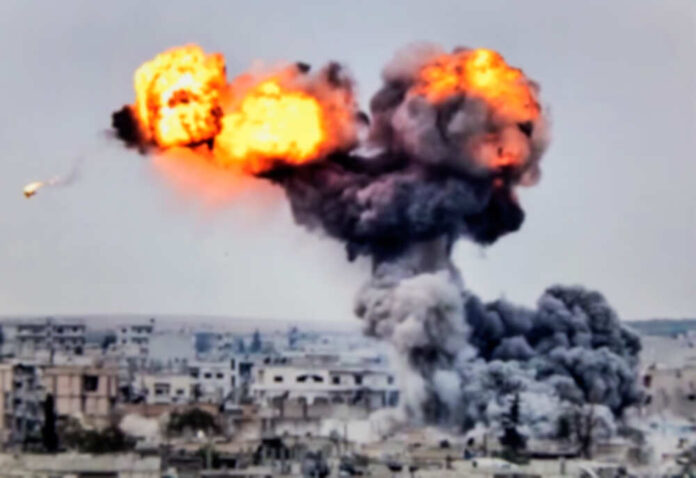
In a significant development, Israeli military officials announced the successful operation resulting in the elimination of Ali Ghali, a prominent leader of the Palestinian Islamic Jihad (PIJ). This targeted strike, carried out jointly by the Shin Bet internal security agency and the Israeli Air Force, involved the precise bombing of a safe house in Khan Younis. The operation not only neutralized Ghali but also eliminated two other PIJ members present at the location.
Israeli Forces Collaborate to Eliminate Ali Ghali. The collaboration between the Shin Bet internal security agency and the Israeli Air Force proved instrumental in the successful elimination of Ali Ghali. Rear Adm. Daniel Hagari, the official spokesperson for the Israeli Defense Forces (IDF), described the air strike as a precise and meticulously planned operation. The IDF, through images and videos released to the media, aims to showcase its efforts to minimize civilian casualties throughout the course of the operation.
Ali Ghali’s Role and PIJ’s Rocket Attacks on Israel. According to the IDF, Ali Ghali held a significant position within the Palestinian Islamic Jihad, commanding their rocket unit responsible for launching strikes on Israel. Ghali’s elimination is a major blow to the terrorist organization, disrupting their ability to carry out further attacks. It is worth noting that Ghali was the second-in-command of PIJ’s rocket squad, preceded by Tareq Izz ed-Din. The operation named “Shield and Arrow” targeted Ghali specifically, while the first attack of the operation resulted in the death of Tareq Izz ed-Din, who was setting up a rocket-building network in the Samaria and Judea regions.
Announcement by Palestinian Islamic Jihad. Following the operation, Palestinian Islamic Jihad released a statement confirming the death of Ali Ghali. The loss of such a high-ranking leader will undoubtedly have a significant impact on the organization’s activities and capabilities.
Egypt’s Ceasefire Proposal and Regional Reactions. Prior to the operation, Israeli authorities had expressed their consideration of an Egyptian cease-fire proposal. However, Rear Adm. Daniel Hagari emphasized that the Palestinian terrorist organizations needed to provide their consent for the cease-fire to come into effect. Egypt, a key mediator in the region, has been cautious about the possibility of a truce, particularly after hosting Mohammad al-Hindi, a top leader of the Palestinian Islamic Jihad, for talks. Foreign Minister Sameh Shoukry acknowledged the challenges faced in restoring peace and restarting the political process, urging nations supporting peace to intervene and halt the ongoing assaults. Shoukry further emphasized that Israel must cease its unilateral actions aimed at undermining the establishment of a Palestinian state.
Differing Perspectives on Ceasefire Conditions. One of the conditions set by the Palestinian Islamic Jihad for a ceasefire is an end to Israeli assassinations of its leaders. Israel, however, disagrees with this demand, highlighting the complex and delicate nature of the negotiations and the differences in priorities between the parties involved.














